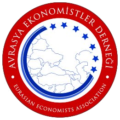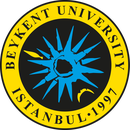
International Conference on Eurasian Economies
20-22 September 2022 – Baku - AZERBAIJAN
Paper properties
Paper ID : 2685
Status : Paper submitted to journal
Language : Turkish
Topic : International Trade and Globalization
Presenter: Assoc. Prof. Dr. Gülçin Yücel
Presentation Location : online
Session : 6A Çevre Ekonomisi
Political Economy of the International Carbon Emissions Trading System and Recommendations for Turkey
Uluslararası Karbon Emisyonu Ticaret Sisteminin Ekonomi Politiği ve Türkiye İçin Öneriler
- Assoc. Prof. Dr. Gülçin Yücel (Istanbul Beykent University, Türkiye)
Abstract
The deterioration in environmental quality and the increase in pollution level as a result of rapidly increasing human activities have brought environmental problems into the focus of attention in recent years. Carbon emissions have a significant impact on international trade. Carbon trading characteristically exemplifies the neoliberalization of climate policy. Despite widespread recognition of the need for a shift to more sustainable production and consumption, and numerous initiatives to this end, global resource extraction and the corresponding socio-ecological degradation continue to grow. In order to make production-consumption systems sustainable, measures are required in relation to certain commodity chains or supply systems, or in relation to national and global production networks. In practice, it is seen that in many countries, hybrid methods, in which the emission trading system and carbon taxes are combined and support each other, are chosen in the pricing of carbon. This study contributes to this understanding by synthesizing the theory and evidence linking unsustainable production-consumption systems to power and inequality. For Turkey, such hybrid approaches can be recommended in the long run. However, it is thought that the transition to the carbon tax, which is thought to be a much more effective application in the short term, will be very useful in limiting carbon emissions. Carbon pricing policy is expected to bring higher sectoral production and export values than tax policy. The extent to which this tax will contribute to international green investments and economic transformations should also be carefully planned and monitored.
JEL codes: F18, F64, P16




